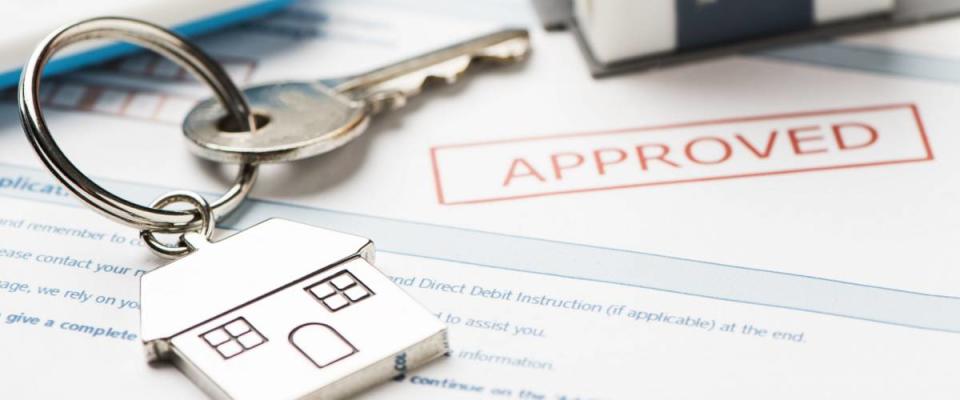What's a Jumbo Mortgage, and When Do You Need One?

When you're buying a luxury home or are just house-hunting in a market where prices are sizzling, a regular mortgage isn't going to fit. You'll need to reach for a loan in an extra-large size: what's formally known as a jumbo mortgage.
Jumbo loans are in dollar amounts too big to be guaranteed by the giant government-sponsored companies that back most mortgages in the U.S.
That makes the loans riskier for lenders -- and trickier for borrowers.
What exactly is a jumbo loan?

You'll need a jumbo loan if you want to buy a high-end home.
A jumbo loan isn't necessary for most mortgage applicants, who qualify for loans secured by Fannie Mae and Freddie Mac, two huge mortgage companies that were created by Congress.
Their backing gives the lender some protection if you don't pay your loan, and it allows for more lenient lending terms. The majority of U.S. mortgages are known as "conforming loans" because they conform to Fannie and Freddie's loan limits.
Jumbo loans are for borrowers who have to bust through those barricades. You're borrowing more money than the federal government is willing to guarantee, putting your lender at greater risk if you default.
Pricey mansions and ordinary homes in neighborhoods with above-average costs of living often require homebuyers to take out "nonconforming loans" — jumbo mortgages above the limits.
Want more MoneyWise? Sign up for our weekly email newsletter.
Where do they draw the line?

Higher conforming limits apply in high-priced areas like San Francisco.
In 2019, these are the conforming loan limits. You'll need a jumbo loan if you want to borrow more than these amounts:
$484,350 in most U.S. counties.
$726,525 in high-cost areas such as San Francisco, New York City and Washington, D.C.
$726,525 throughout Alaska, Hawaii, Guam and the U.S. Virgin Islands.
The limits are adjusted each year by the Federal Housing Finance Agency to keep up with changes in home prices. The agency says the nationwide average price went up 6.9% between 2017 and 2018, so the loan boundaries were boosted 6.9% for 2019.
The conforming limit across most of the U.S. had been $453,100 last year.
The FHFA has an interactive map that will show you the conforming loan limit for your county.
What does it take to get a jumbo loan?

Lenders have traditionally asked more from jumbo loan borrowers, but things are getting looser.
Jumbo loans made up 5.2% of mortgages to buy homes (as opposed to refinance) in 2016 and were responsible for about 17% of the money borrowed for home purchases, according to the Federal Reserve.
So again, chances are you won't need a jumbo mortgage. But if you do:
You might expect a higher mortgage rate. This has traditionally been the case with jumbos, reflecting the increased risk that lenders assume when extending loans worth around a half-million dollars or more.
But today, many buyers are landing lower rates for jumbo mortgages than for conforming loans. Lenders are charging higher rates on conforming loans as a way of passing off rising fees Freddie Mac and Fannie Mae are charging to guarantee mortgages.
The increased fees are a part of the fallout from the housing market crisis of the 2000s, which threatened Fannie and Freddie as homeowners lost the ability to pay for their homes in alarming numbers. Take a look at mortgage rates in your area.
You might be asked to make a higher down payment. But this, too, was generally the way things used to be. Today, not so much.
At one time, lenders wanted you to have cash to cover up to 30% of the purchase price if you were buying a property requiring a jumbo loan.
Now, you can get away with putting down 20%, or even 10%.
Your credit score might give you more trouble when you apply for a jumbo loan. Because of their increased risk, lenders will often require you to present an outstanding credit score if you want a high-dollar loan.
That generally means a score of at least 720, though some more demanding lenders may require a credit score of 760 or better, says credit reporting agency Experian.
But standards have loosened at many lenders, thanks to improvements in the economy and the housing market.
How can you get approved?

Your jumbo loan application will be approved if you're willing to meet some goals.
Got your eye on a big-money home? Live in an area where prices are skyrocketing? Here are some steps to make sure you land a jumbo mortgage when you apply:
Raise your credit score as far above 700 as possible. That means paying off debt to reduce your credit utilization, the amount of your available credit that you're using. And, always pay bills on time.
Bolster your savings to increase the amount of cash you have on hand. The more money you have in the bank to pay your bills, the greater confidence a lender may have in your ability to pay a substantial mortgage.
Put some money aside for a decent-sized down payment. Assume more of the risk personally so that a lender is more comfortable assuming the remaining risk.
Increase your income as much as possible. Can you take on any side work? The more you earn, the more buying power you have for a new home.
You might have to work toward these goals for a year or longer before approaching a bank for a jumbo loan. Living within your means and saving more than you spend will help you secure a loan large enough to purchase your (high-priced) dream home.
Finally, be sure to shop around when considering a jumbo mortgage. Some lenders are more borrower-friendly than others. If one bank rejects you, don't get discouraged — another might promptly say yes.
Subscribe now to our free weekly newsletter. Don’t miss out!
